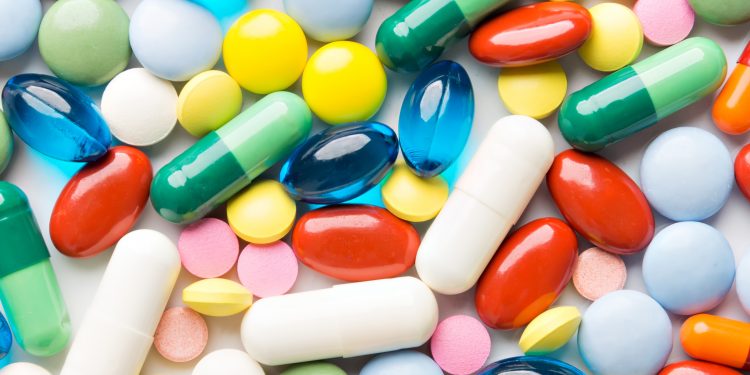We know exercise is important for staying healthy and improving weight loss. Recently researchers have found a molecule within the blood that’s produced during exercise and might effectively reduce food intake and obesity in mice. So, are we one step closer to giving exercise in a pill? Let’s have a glance at some recent research from the journal Nature.
Researchers analyzed the blood composition of two groups of mice. One group of mice was subjected to intense treadmill running, whereas the other control group did not exercise. Researchers then compared blood samples from both groups and isolated a modified amino acid called N-lactoyl-phenylalanine (Lac-Phe). Lac-Phe was found in much higher levels within the mice that were heavily exercised. They then fed this modified organic compound to other mice and found that it had been able to suppress food intake by about 50% over 12 hours. When given to mice for 10 days (about 1 and a half weeks), LacPhe reduced overall food intake and resulted in weight loss and improved glucose control without the necessity to exercise. Researchers then disabled an enzyme and showed that mice lacking this enzyme and unable to produce LacPhe did not lose as much weight from exercise as the mice that could produce Lac-Phe on the identical exercise plan.
Finally, researchers then looked at the data from humans and found out that the sprinting exercises generate the largest increases of Lac-Phe in the blood, followed by resistance training like lifting weights. The lowest increases were found in aerobic exercises, like walking and jogging. This modified amino acid seems to be one of the many ways that exercise helps our bodies control our metabolism and lose weight.
Lac-Phe is a modified form of an essential amino acid called phenylalanine. Phenylalanine can be found in most protein-containing foods, such as fish, eggs, milk, beans, and meat. Lac-Phe is created in our body by the combination of phenylalanine and lactate, which we get from lactic acid. Lactic acid is a metabolite produced in our bodies when we exercise, particularly during intense exercise. Its responsible for the burning sensation you feel from the fatigued muscles. it appears that a combination of elevated levels of lactic acid with the essential amino acid phenylalanine help produce larger amounts of Lac-Phe in the body.
So, we can see that intense exercise seems to generate more Lac-Phe, and it may play a role in making exercise more effective for weight loss by suppressing appetite among other things. This is interesting because the common belief about exercise is that it tends to stimulate an increase in appetite, not reduction as the study might suggest. So, does exercise increase, or decrease hunger? The research suggests a much more complicated answer in humans. Short periods of intense exercise appear to suppress appetite, at least in the short term. Appetite returned to normal in an hour or so after exercise, but perhaps this modified amino acid found in the study is one of the compounds that contribute to short-term appetite suppression in those who’ve just undergone an intense bout of exercise. However, this appetite suppression may not be seen in everyone.
This appetite suppression seems weaker in overweight and obese individuals and stronger in leaner and fitter individuals, suggesting that not everyone responds to Lac-Phe in the same way. Also, appetite was decreased mostly in those during acute and intense exercise and may be slightly increased in those doing chronic or aerobic exercise, particularly when done after a period of fasting. The overall plethora of evidence suggests that the belief that exercise will increase your appetite is more of a myth than reality and is not well substantiated by the evidence. So could the discovery of this modified amino acid, N-lactoyl-phenylalanine, be another step forward to being able to gain the benefits of exercise in a pill?
No, this is just one of perhaps tens or hundreds of beneficial compounds that exercising can produce. Also, exercise stimulates lean muscle growth and gets the whole cardiovascular system working, something you’re just going to accomplish by swallowing a pill. Although, it does potentially highlight some of the benefits that high-intensity exercises like weightlifting or HIIT might have over other types of exercise.
If you’re thinking about Lac-Phe as a supplement or drug, don’t bother. It’s an experimental chemical not available to the public and likely won’t be for many years to come. You just need to do a bit of high-intensity resistance training. High-intensity exercises more effectively increase the level of Lac-Phe, and this, in turn, might help to suppress appetite and improve glucose control.
Exercise is much more than just burning calories. It stimulates the production of hormones and compounds that do everything from increasing fat burning, to improving metabolic health, and with this recent study, now potentially suppressing appetite.











Discussion about this post